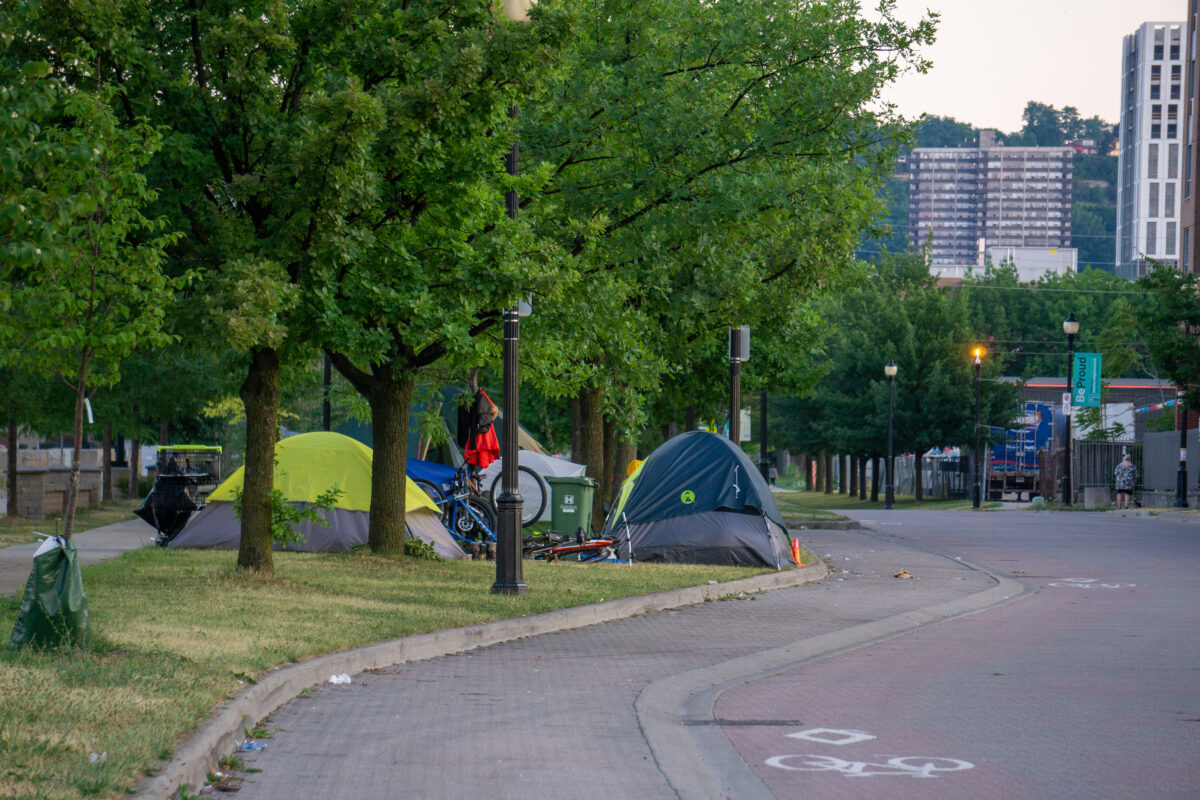The Superior Court’s decision to deny the Region of Waterloo’s request to remove an encampment on vacant municipal land sent waves throughout Ontario because it’s the first Ontario court decision to find a Section 7 Charter Right to encamp due to a lack of “accessible” shelter spaces.
Justice Michael J. Valente ruled Waterloo’s bylaw banning erecting tents “interferes with the population’s choice to protect itself from the elements and is a deprivation of liberty within the scope of section 7” and “violates the Charter protected right to life.”
The Waterloo decision is persuasive, not binding precedent.
It does not affect Hamilton’s encampment enforcement procedures.
There is an ongoing Charter of Rights challenge against Hamilton’s parks bylaw and related bylaws prohibiting encampments. As part of this litigation, lawyers unsuccessfully sought an injunction restraining the City of Hamilton from removing encampments. The bar to winning an injunction is high, and they were unsuccessful.
I submit there are three key differences distinguishing the Waterloo case from Hamilton:
- The Waterloo encampment is on vacant municipal land, not on parkland. Thus, as noted by the Waterloo judge, there is no need to consider the balance between public use and the encampment.
- Waterloo has a significant shortfall in available shelter spaces. At best, 371 for approximately 1,100 people experiencing homelessness. [In Hamilton, October 2021, the City of Hamilton was renting hotels to use as emergency shelters. The judge in the Hamilton injunction found that Hamilton was nearly balanced between beds and the unhoused population.]
- The Waterloo judge determined shelter spaces must not split couples, must provide supports, must not “impose rules that cannot be followed due to addiction,” and must accommodate mental or physical disability.
If Waterloo Region appeals to the Ontario Court of Appeal, the eventual Court of Appeal decision will supersede whatever eventual decision will be made in Hamilton. Thus, the Hamilton challenge lawyers (and the City of Hamilton) will become intervenors in the Waterloo case.
A Waterloo appeal will at least settle the legal obligations of municipalities to support unhoused people.
Here are some related legal and political commentaries on the ruling:
- Statement of the Hamilton challenge legal team.
- Municipal law lawyer Douglas Judson, a former municipal councillor, provides a case summary.
- The National Post’s Colby Cosh is critical of the ruling for its definition of “truly accessible” shelter space. [Note: Cosh gave me an unexpected shout-out for breaking the news and posting the ruling.]
- The decision is only a partial victory, writes Leilani Farha, former United Nations Special Rapporteur on the right to housing. Farha, and co-author Diana Chan McNally, say the Court ruling could signal to municipalities all they need to do is add more shelter beds.
- A predictable populist outrage response from Brian Lilley.
I’ve written a longer piece discussing relevant portions of the ruling.

